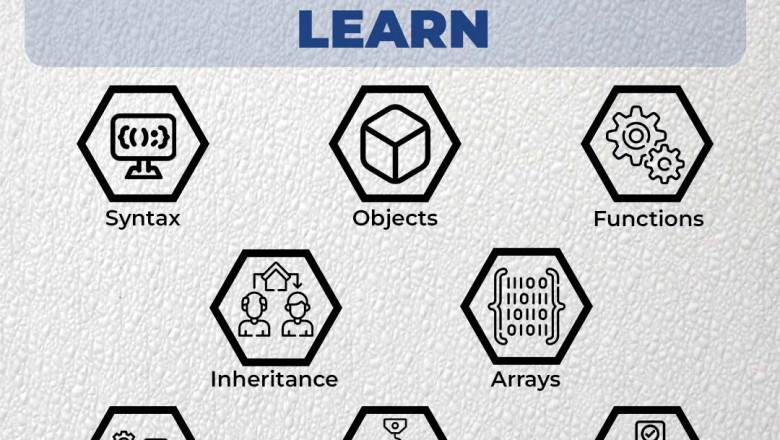views
How to Choose the Best Java Training Course in Ghaziabad
Java continues to be one of the most popular and widely used programming languages in the world. Whether you're a student aiming for a career in software development or a working professional looking to upgrade your skills, choosing the right Java training institute can make a huge difference in your learning journey. If you’re located in or around Ghaziabad, a bustling city close to Delhi and a growing tech hub, you’ll find many options. But how do you pick the best Java training in Ghaziabad? This guide will help you understand what factors to consider and how to make an informed decision.
1. Define Your Goals
Before diving into course options, be clear on what you want to achieve.
-
Are you a beginner with no programming background?
-
Do you want to specialize in backend development, Android development, or enterprise applications?
-
Are you preparing for job interviews or certification exams (like Oracle Certified Professional)?
-
Do you need hands-on experience through projects and internships?
Understanding your goals will help you filter out courses that are too basic or too advanced for your needs.
2. Check the Curriculum
A good Java course should cover both core Java and advanced Java concepts. Here’s what to look for in the curriculum:
Core Java Topics:
-
Java syntax and data types
-
Object-Oriented Programming (OOPs) concepts
-
Exception handling
-
Collections framework
-
Input/Output (I/O)
-
Multithreading
Advanced Java Topics:
-
JDBC (Java Database Connectivity)
-
Servlets and JSP
-
Web application development
-
Frameworks like Spring and Hibernate
-
RESTful APIs
Bonus Topics:
-
Git/GitHub
-
Maven/Gradle
-
Basics of cloud deployment
-
Interview preparation and soft skills
Make sure the syllabus is updated with the latest tools and industry trends.
3. Experience and Qualifications of Trainers
An experienced trainer can simplify complex topics and guide you with real-world examples.
-
Look for trainers with industry experience, preferably people who have worked as software developers or project managers.
-
Check their educational background and certifications.
-
See if they’ve received positive reviews for being approachable, supportive, and skilled at explaining technical content.
You can often find this information on the training institute’s website or via LinkedIn profiles.
4. Mode of Training: Online, Offline, or Hybrid
Post-COVID, most institutes offer online training, while some still focus on in-person sessions.
-
Offline training allows for better interaction and focus, but may be less flexible.
-
Online training is convenient, especially if you’re working or studying. Just ensure it’s live, not just pre-recorded.
-
Hybrid courses give the best of both worlds — in-person help and the ability to revise sessions online.
Choose the mode that fits your lifestyle and learning preferences.
5. Hands-on Practice and Real Projects
Learning Java isn’t just about theory. Practical exposure is crucial.
-
Ensure the course includes coding exercises, labs, and projects.
-
Ask if they offer real-world project work — like building a web application, e-commerce site, or inventory management system.
-
Check if you’ll get to work with databases (like MySQL), servers (like Tomcat), and frameworks (like Spring Boot).
The more you code, the more confident you'll become.
6. Class Size and Student Support
The learning environment matters. A class with too many students may not allow for individual attention.
-
Ask about batch sizes. Smaller batches (10–20 students) are generally better.
-
Find out if you can reach out to trainers for one-on-one doubt clearing sessions.
-
Does the institute offer mentorship, peer support, or community groups?
Strong student support can significantly enhance your learning experience.
7. Certifications and Recognition
While skills matter more than certificates, having a recognized certification helps in the job market.
-
See if the institute provides a course completion certificate.
-
Do they prepare you for Oracle Java certification exams?
-
Is the institute affiliated with any tech bodies or recognized by any companies?
Some employers look for specific certifications or prefer candidates trained from known institutes.






















Comments
0 comment